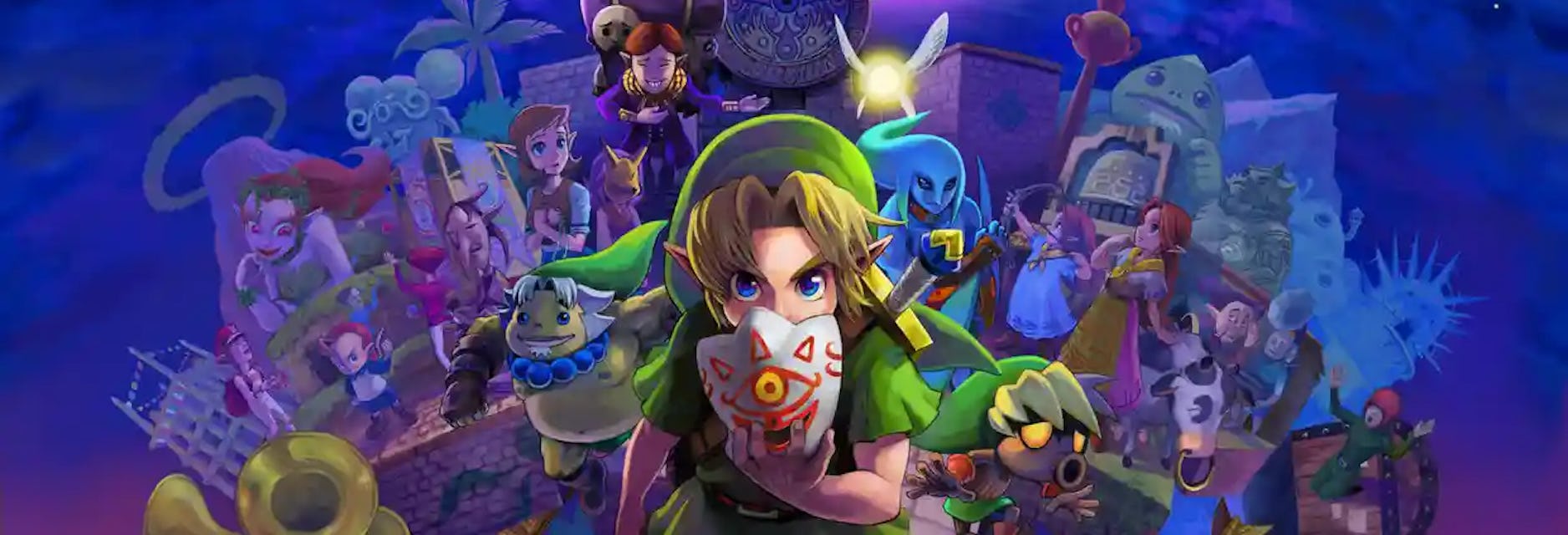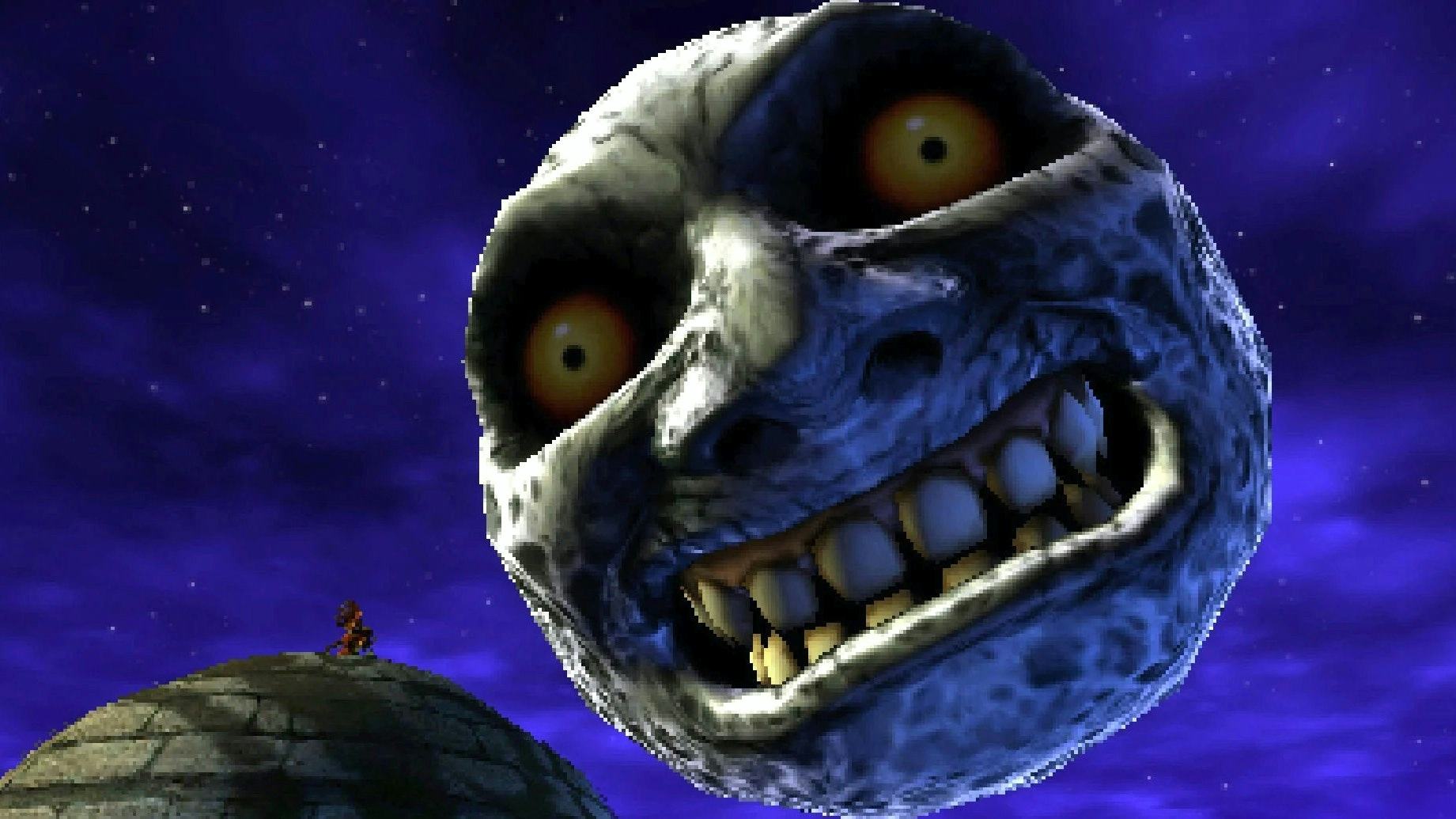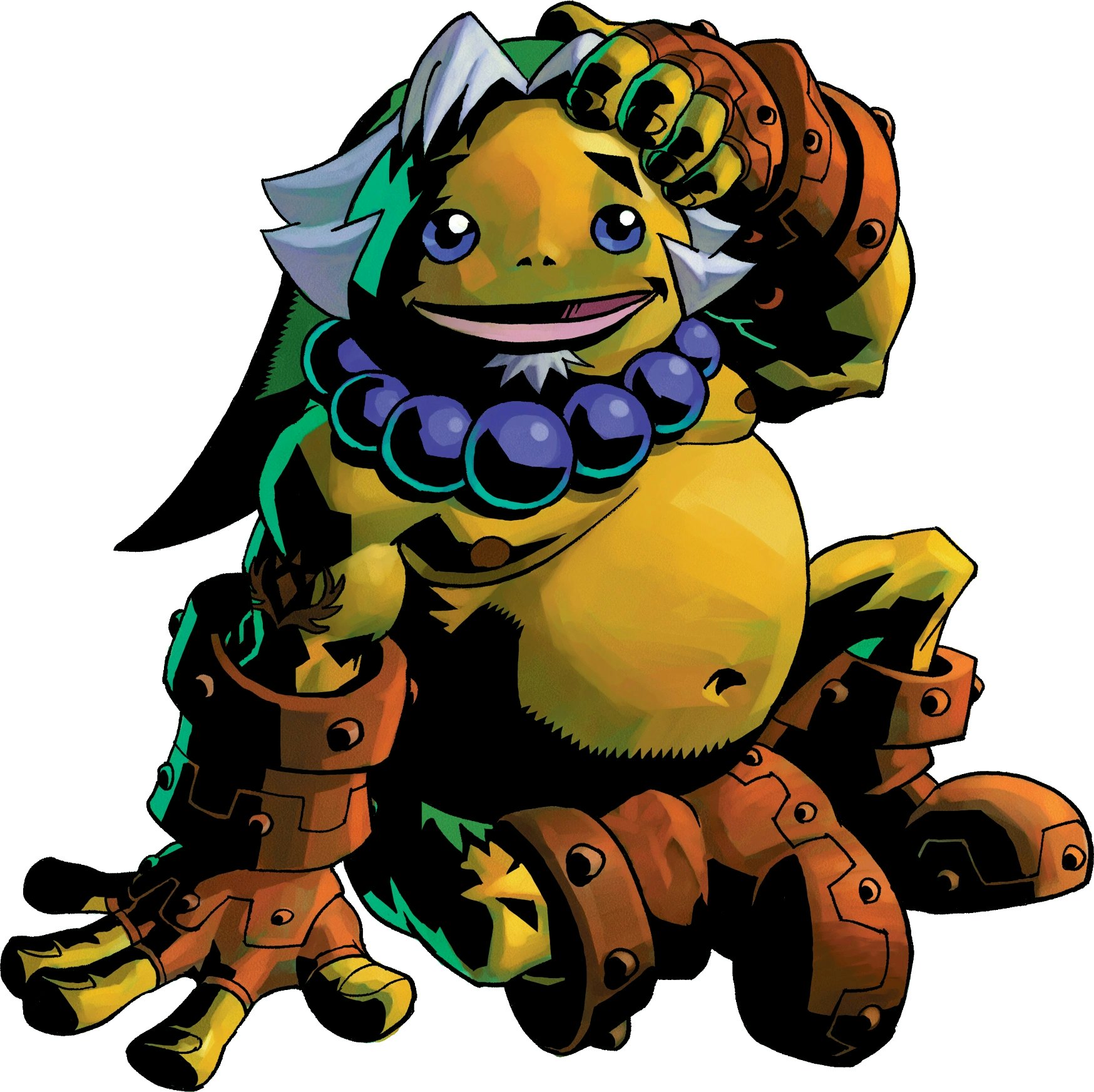
Imagine that you have spent countless hours playing the latest Zelda game which critics hail as a flawless new watermark for the entire medium. Groundbreaking in terms of visuals, gameplay, music, story, you name it. It’s hard to imagine a better game ever existing. And yet, another emerges on the horizon — and it’s a direct sequel! All the commercials and hype in the world couldn’t prepare you for a game that was this different and this good.
This is more or less what’s been happening with Tears of The Kingdom right now, the game whose fusing abilities have completely recontextualized the world of Breath of the Wild. But believe it or not, this happened over two decades ago when 2000’s Majora’s Mask followed up the stunning Ocarina of Time with a brilliant and surprisingly apocalyptic worldview. If you’ve never played one of the most shocking narrative turns in gaming history, or if you want to relive the glorious nightmare, it’s available right now if you’ve subscribed to Nintendo Switch Online + Expansion Pack.
While Tears of the Kingdom radically expands what’s possible in the world of Hyrule over the last iteration, Majora’s Mask is more of a contraction. Ocarina of Time had broken a five-year break in the series after Link’s Awakening had come out for the Game Boy. The last console game for the series had come out for the SNES. Ocarina revitalized the series, and then Majora’s Mask took bigger risks that paid off in spades.
The game’s central conceit was seen in all the advertising: Link has 72 hours to save the world. During a brief introduction, the creepy mask-wearing Skull Kid horsejacks Link and steals his precious ocarina before transforming him into a Deku Scrub! In his haste, Skull Kid leaves behind one of his hench fairies, Tatl, who forms an unlikely alliance with the newly wooden Link. A mysterious salesman tells Link he can get him back to his original form if he finds Skull Kid, but he’s leaving in three days.
Thus Link, in a new Deku state, has to explore the small Clocktown in which he’s found himself. Things are hustling and bustling because in three days there’s going to be a very exciting festival. A timer at the bottom of the screen keeps the player focused on the passage of time, which is decidedly not real-time. Three days pass in about an hour, as Link has to scurry to and forth with his various tasks. If he doesn’t complete them, well, the moon crashes into the world and everything is obliterated in fiery destruction.

During the busy days of production on Majora’s Mask, producer Shigeru Miyamoto went to see a movie sweeping art houses around the world: Run Lola Run. It might be hard to think of the indie classic and a 2000 N64 game as sharing thematic similarities, just as it might be hard to imagine Twin Peaks and Link’s Awakening being connected, but both are true. Artistic inspiration knows no artistic boundaries, and the game’s three-day mechanic was influenced by the “resets” experienced by the titular Lola during the movie.
The result is a major video game release with the heart of an indie movie. Majora’s Mask surprised and frustrated players upon its release, offering a completely different experience than any Zelda game that had come before. Game over now meant that the entire world was destroyed, sending Link back to the beginning of the brutal cycle all over again. There were the people of Clocktown again, planning their festival without any memories of the destruction they had just experienced.

Masks would play a crucial role as well, transforming Link into more than just a Goron. This sort of transformation is something the series would embrace again on the Wii’s Twilight Princess. Link’s abilities were expanding as the amount of time to figure them out was contracting.
The series has now moved firmly away from a game like Majora’s Mask, encouraging exploration of a huge expanse as opposed to figuring out the puzzles of one specific location over and over again. But the game remains a powerful reminder of how video game series can transform themselves from one title to the next, inviting players to see the same character in entirely different worlds.







